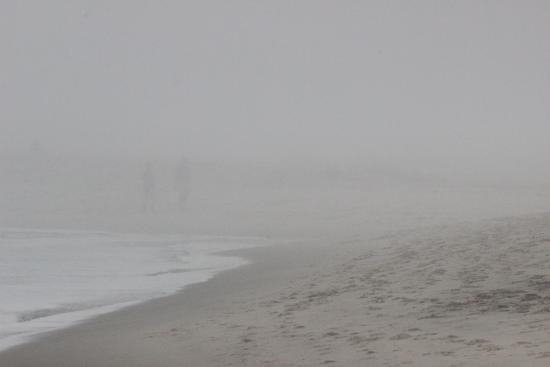Fog
“We mostly spend our lives conjugating three verbs: to Want, to Have, and to Do. Craving, clutching, and fussing on the material, political, social, emotional, intellectual, and even on the religious plane, we are kept in perpetual unrest, forgetting that none of these verbs have any ultimate significance, except so far as they are transcended by and included in the fundamental verb, to Be, and that Being, not wanting, having and doing, is the essence of the spiritual life.”— Evelyn Underhill in The Spiritual Life.
Fog
I rise early on our first day at the beach in over six months to a dense fog where we can barely see in front of us. The mist lifts slightly. A pod of silent pelicans flies by so close I can almost touch them. They take my breath away. Their majesty is stunning. I spy dolphins at a distance and follow them across my visual path. Finally, the fog clears just enough to see an osprey high about the water, looking for breakfast.
This is the story of life. Most of the time, we live in a fog, never knowing our direction or path completely. We have moments when the fog clears briefly, and we receive insights. The dolphins, the pelicans, and the osprey are like those insights that majestically fly by. If we are not alert, we will miss them. We treasure those moments and wait patiently for the next ones.
As I write, I have lost the dolphins. It is a lesson. If we are not constantly alert, we will miss the insight. But being observant cannot happen continually. We want to hold on to our brief insights and capture them. But we must always be careful not to worship the insights. This could be like the disciples wanting to make booths to Elijah and Moses at Jesus’ Transfiguration.
One more observation. As I stay alert, any pain and anxiety I have goes away. I learn that being mindful and living in the present moment is turning my life over to God. It is a place of peace.
Fog Clearing
Joanna. https://www.joannaseibert.com/





